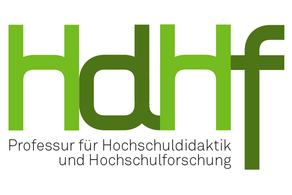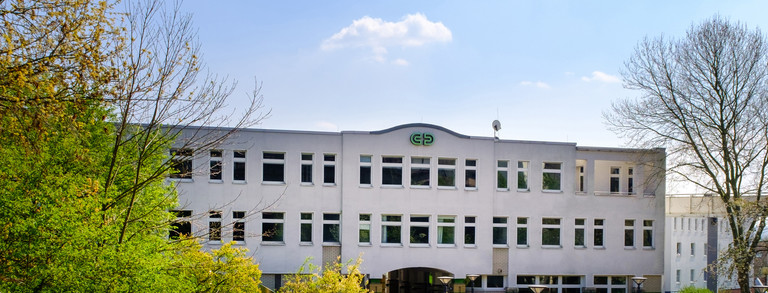Journal Articles
Forthcoming
Leišytė, L., Deem, R., & Načinović Braje, I. (Eds.). (in press). Diversity and change agents in higher education [Thematic issue]. Social Inclusion, 14.
2025
Leišytė, L., Načinović Braje, I., Almog, S., Baysan, S., Carvalho, T., Daunoraitė, D., Diogo, S., Papaioannou, P., Farmaki, A., Feldman, S., Külcür, R., Matijošytė, I., Pralgauskaitė, S., Rangelova, V., & Šatkovskienė, D. (2025). Early career researchers as stakeholders in university decision-making in Europe: Comparative perspectives. Social Inclusion, 14, Article 9683. https://doi.org/10.17645/si.9683
Mergner, J., Pekşen, S., & Leišytė, L. (2025). Intersectionality at German universities: Teaching staff as change agents with higher education didactic workshops. Social Inclusion, 14, Article 9829. https://doi.org/10.17645/si.9829
Papaioannou, P. (2025). The relation of MOOC's to Quadruple Helix Innovation Model. Journal of Research and Innovation in Higher Education, 5(2), 1–26. Online available
2024
Kumpikaitė-Valiūnienė, V., Leišytė, L., Rose, A.-L., Duobienė, J., Duoba, K., Alas, R., & Banevičienė, I. (2024). Factors influencing expatriates' adjustment in Estonia and Lithuania. International Journal of Intercultural Relations, 100, Article 101967. https://doi.org/10.1016/j.ijintrel.2024.101967
Papaioannou, P. (2024). The participation of early career researchers in the decision-making bodies of a German university. Postcolonial Directions in Education, 13(1), 188–213. Online available
Zenkienė, L., & Leišytė, L. (2024). Strengthening university capacity in regional innovation ecosystem through the participation in the European Universities initiative. European Journal of Higher Education, 14(sup1), 88–108. https://doi.org/10.1080/21568235.2024.2410358
2023
Leišytė, L. (2023). Work-life balance of early career academics in the context of COVID-19 pandemic-related regulatory changes. Beiträge zur Hochschulforschung, 45(1), 114–128. Online available
Waheed, M., Ul-Ain, N., & Leišytė, L. (2023). Quality and competency for sustainable digital future of education: Context of digital learning system. ECIS 2023 Proceedings, Research Paper 328. Online available
2022
Baumann, S., & Leišytė, L. (2022). Changing research structures and academic staff competence in the Swiss non-traditional university sector. Higher Education Policy, 35(3), 750–771. https://doi.org/10.1057/s41307-021-00231-3
Leišytė, L., Rose, A.-L., & Sterk-Zeeman, N. (2022). Higher education policies and interdisciplinarity in Germany. Tertiary Education and Management, 28(4), 353–370. https://doi.org/10.1007/s11233-022-09110-x
Leišytė, L. (2022). Kommentar zu Klonschinski: Gender Bias in der Wissenschaft. Gender(ed) Thoughts, (3), 14–15. Online available
Leišytė, L., Pekşen, S., & Tönnes, L. (2022). The influence of university's HRM practices on female academics' progression to management positions. Journal of East European Management Studies, 27(4), 662–685.
https://doi.org/10.5771/0949-6181-2022-4-662
2021
Leišytė, L., Deem, R., & Tzanakou, C. (Eds.). (2021). Inclusive universities in a globalized world [Thematic issue]. Social Inclusion, 9(3). Online available
Leišytė, L., Deem, R., & Tzanakou, C. (2021). Inclusive universities in a globalized world [Editorial]. Social Inclusion, 9(3), 1–5. https://doi.org/10.17645/si.v9i3.4632
Leišytė, L., & Želvys, R. (Eds.). (2021). International perspectives on transforming management of higher education [Special issue]. Acta Paedagogica Vilnensia, 46. Online available
Leišytė L., & Želvys R. (2021). Special issue of Acta Paedagogica Vilnensia: International perspectives on transforming management of higher education [Preface]. Acta Paedagogica Vilnensia, 46, 8–12. Online available
Pekşen, S., & Leišytė, L. (2021). Germany: Policies for internationalization. International Higher Education, (106), 15–16. https://doi.org/10.36197/IHE.2021.106.07
(This article has been translated into Chinese, Portuguese, Russian, Spanish and Vietnamese language.)
Pekşen, S., & Leišytė, L. (2021, April 24). Mixing soft and hard power approaches to international HE. University World News. https://www.universityworldnews.com/post.php?story=20210420113433272
Pekşen, S., Queirós, A., Flander, A., Leišytė, L., & Tenhunen, V. (2021). The determinants of external engagement of hard scientists: A study of generational and country differences in Europe. Higher Education Policy, 34(1), 18–41. https://doi.org/10.1057/s41307-020-00214-w
Waheed, M., & Leišytė, L. (2021). German and Swedish students going digital: Do gender and interaction matter in quality evaluation of digital learning systems?. Interactive Learning Environments, 31(7), 4367–4381. https://doi.org/10.1080/10494820.2021.1965626
Želvys, R., Leišytė, L., Pekşen, S., Bružienė, R., & Rose, A.-L. (2021). From collegiality to managerialism in Lithuanian higher education. Acta Paedagogica Vilnensia, 46, 27–42. https://doi.org/10.15388/ActPaed.2021.46.2
2020
Rose, A.-L., Dee, J., & Leišytė, L. (2020). Organizational learning through projects: A case of a German university. The Learning Organization, 27(2), 85–99. https://doi.org/10.1108/TLO-11-2018-0200
Schiller, B., & Leišytė, L. (2020). Study program innovation in the Triple Helix context: The case of cooperative study programs at a German university of applied science. Triple Helix, 7(2-3), 160–188. https://doi.org/10.1163/21971927-bja10002
2019
Leišytė, L. (2019). Institutional logics and governance of higher education: Implications for academic productivity and professional autonomy. Nagoya Journal of Higher Education, 19(03), 199–232. https://doi.org/10.18999/njhe.19.199
Leišytė, L. (2019). Der Wandel universitärer Entscheidungsstrukturen in den USA. Ordnung der Wissenschaft, 2019(3), 151–156. Online available
Mergner, J., Leišytė, L., & Bosse, E. (2019). The widening participation agenda in German higher education: Discourses and legitimizing strategies. Social Inclusion, 7(1), 61–70. https://doi.org/10.17645/si.v7i1.1605
Rose, A.-L., Leišytė, L., Haertel, T., & Terkowsky, C. (2019). Emotions and the liminal space in entrepreneurship education. European Journal of Engineering Education, 44(4), 602–615. https://doi.org/10.1080/03043797.2018.1553937
Ul-Ain, N., Vaia, G., DeLone, W. H., & Waheed, M. (2019). Two decades of research on business intelligence system adoption, utilization and success – A systematic literature review. Decision Support Systems, 125, Article 113113. https://doi.org/10.1016/j.dss.2019.113113
Waheed, M., & Kaur, K. (2019). Students' perceptual quality standards for judging knowledge quality: Development and validation of a perceived e-learning knowledge quality scale. Information Development, 35(2), 319–332. https://doi.org/10.1177/0266666917744370
2018
Chatterjee, D., Leišytė, L., Dasappa, S., & Sankaran, B. (2018). University research commercialization in emerging economies: A glimpse into the 'black box' [published online 2017, October 18]. Science and Public Policy, 45(3), 361–372. https://doi.org/10.1093/scipol/scx066
Leišytė, L., & Sigl, L. (2018). Academic institutional entrepreneurs in Germany: Navigating and shaping multi-level research commercialization governance. Triple Helix, 5:13. https://doi.org/10.1186/s40604-018-0057-5 / https://dx.doi.org/10.17877/DE290R-19991
Leišytė, L. (2018). Julian L. Garritzmann: The political economy of higher education finance. The politics of tuition fees and subsidies in OECD countries, 1945-2015 [Book review]. Sociologický časopis / Czech Sociological Review, 54(3), 479–480. Online available
Leišytė, L., & Fochler, M. (Eds.). (2018). Agents of change in university-industry-government-society relationships [Topical collection]. Triple Helix, 5. Online available
Leišytė, L., & Fochler, M. (2018). Topical collection of the Triple Helix Journal: Agents of change in university-industry-government-society relationships [Editorial]. Triple Helix, 5:10. https://doi.org/10.1186/s40604-018-0056-6
Sigl, L., & Leišytė, L. (2018). Imaginaries of invention management: Comparing path dependencies in East and West Germany. Minerva, 56(3), 357–380. https://doi.org/10.1007/s11024-018-9347-3
2017
Benneworth, P., Zeeman, N., Pinheiro, R., & Karlsen, J. (2017). National higher education policies challenging universities' regional engagement activities. EKONOMIAZ, 92(02), 112–139. Online available
Dee, J. R., & Leišytė, L. (2017). Knowledge sharing and organizational change in higher education. The Learning Organization, 24(5), 355–365. https://doi.org/10.1108/TLO-04-2017-0034
Leišytė, L., & Rose, A.-L. (2017). Academic staff mobility in the age of Trump and Brexit [Reprint from: International higher education, (89), 5-6]. DUZ, 73(04), 63–64.
Leišytė, L., & Rose, A.-L. (2017). Academic staff mobility in the age of Trump and Brexit. International higher education, (89), 5–6. https://doi.org/10.6017/ihe.2017.89.9832
Leišytė, L., Vilkas, M., Staniskiene, E., & Zostautiene, D. (2017). Balancing countervailing processes at a Lithuanian university. The Learning Organization, 24(5), 327–339. https://doi.org/10.1108/TLO-02-2017-0025
Leišytė, L. (2017). Falle Lehre? Tätigkeitsfelder und Karriereaussichten von Wissenschaftlerinnen in den Niederlanden. Journal Netzwerk Frauen- und Geschlechterforschung NRW, (41), 87–88. Online available
Leišytė, L. (2017). How international is peer review?. In G. Mihut, L. Unangst, L. Reisberg, & H. de Wit (Eds.), The World View: Selected blogs published by Inside Higher Education, 2010-2016 (pp. 30-31). Boston: Center for International Higher Education. Online available
Zeeman, N., & Leišytė, L. (2017, May 9). Global protest of scientists [Blog post]. https://www.insidehighered.com/blogs/world-view/global-protest-scientists
2016
Leišytė, L. (2016). Busemeyer, Marius B.: Skills and inequality: Partisan politics and the political economy of education reforms in Western welfare states [Book review]. Sociologický časopis / Czech Sociological Review, 52(3), 456–458. Further information on the article
Leišytė, L., & Rose, A.-L. (2016). The challenges of attracting and retaining academic talent. Central and Eastern European perspectives. Journal of the European Higher Education Area, (04), 61–82. Online available
Leišytė, L. (2016, December 20). Faculty mobility in the age of Brexit [Blog post]. https://www.insidehighered.com/blogs/world-view/faculty-mobility-age-brexit
Leišytė, L. (2016). New public management and research productivity – A precarious state of affairs of academic work in the Netherlands. Studies in Higher Education, 41(5), 828–846. https://dx.doi.org/10.1080/03075079.2016.1147721
Leišytė, L. (2016, May 9). Top down or bottom up? [Blog post]. https://www.insidehighered.com/blogs/world-view/top-down-or-bottom
2015
Leišytė, L. (2015). Editorial. Journal Hochschuldidaktik, 26(1-2), 3–4. https://dx.doi.org/10.17877/DE290R-21929
Leišytė, L. (2015, January 20). How international is peer review? [Blog post]. https://www.insidehighered.com/blogs/world-view/how-international-peer-review
Leišytė, L., Želvys, R., & Zenkienė, L. (2015). Re-contextualization of the Bologna process in Lithuania. European Journal of Higher Education, 5(1), Special Issue: Europeanization, Internationalization and Higher Education Reforms in Central and Eastern Europe, 49–67. https://dx.doi.org/10.1080/21568235.2014.951669 [Published online: 11 September 2014 ]
Leišytė, L. (2015, June 17). To merge or not to merge? [Blog post]. https://blogcheps.wordpress.com/2015/06/17/to-merge-or-not-to-merge/
May, D., Hosch-Dayican, B., Leišytė, L., Sigl, L., & Terkowsky, C. (2015). Entrepreneurship and gender in higher engineering education in Germany: Proceedings of SEFI Annual Conference 2015, Orléans, France, June 29th-July 2nd, 2015. Paper ID 54684. Online available
2014
Dobbins, M., & Leišytė, L. (2014). Analysing the transformation of higher education governance in Bulgaria and Lithuania. Public Management Review, 16(7), 987–1010. https://dx.doi.org/10.1080/14719037.2013.770060
Leišytė, L., & Hosch-Dayican, B. (2014). Changing academic roles and shifting gender inequalities: A case analysis of the influence of the teaching-research nexus on the academic career prospects of female academics in The Netherlands. Journal of Workplace Rights, 17(3-4), 467–490. https://dx.doi.org/10.2190/WR.17.3-4.m
Leišytė, L. (2014). Editorial. Journal Hochschuldidaktik, 25(1-2), 3–4. https://dx.doi.org/10.17877/DE290R-21928
Leišytė, L. (2014). The transformation of university governance in Central and Eastern Europe: Its antecendents and consequences. Leadership and Governance in Higher Education. Handbook for Decision-makers and Administrators, 1, E-1-4. Berlin: Raabe.
Leišytė, L., & Hosch-Dayican, B. (2014). Das Verhältnis von Forschung und Lehre und die Zukunft der akademischen Karrieren: Eine Fallstudie der genderspezifischen Arbeitsteilung an einer niederländischen Universität. Journal Hochschuldidaktik, 25(1-2), 5–9. https://dx.doi.org/10.17877/DE290R-6588
2013
Leišytė, L., & Westerheijden, D. F. (2013). Students as stakeholders in quality assurance in eight European countries. The Quality of Higher Education / Aukstojo mokslo kokybe, 10, 12–27. http://dx.doi.org/10.7220/2345-0258.10.1
Westerheijden, D. F., Epping, E., Faber, M., Leišytė, L., & de Weert, E. (2013). Stakeholders and quality assurance. Journal of the European Higher Education Area, (4), 71–86. Further information on the article
2011
Benneworth, P., Hospers, G.-J., Jongbloed, B., Leišytė, L., & Zomer, A. (2011). The 'Science City' as a system coupler in fragmented strategic urban environments?. Built Environment, 37(3), 317–335. http://dx.doi.org/10.2148/benv.37.3.317
Leišytė, L., & Horta, H. (2011). Introduction to a special issue: Academic knowledge production, diffusion and commercialization: policies, practices and perspectives. Science and Public Policy, 38(6), 422–424. https://doi.org/10.3152/030234211X12960315267697
Leišytė, L. (2011). Research commercialization policies and their implementation in the Netherlands and in the United States. Science and Public Policy, 38(6), 437–448. https://doi.org/10.3152/030234211X12960315267778
2010 and previous
de Boer, H. F., Enders, J., & Leišytė, L. (2007). Public sector reform in Dutch higher education: The organizational transformation of the university. Public Administration, 85(1), 27–46. https://doi.org/10.1111/j.1467-9299.2007.00632.x
Leišytė, L., Enders, J., & de Boer, H. (2009). The balance between teaching and research in Dutch and English universities in the context of university governance reforms. Higher Education, 58(5), 619–635. https://doi.org/10.1007/s10734-009-9213-1
Leišytė, L., Enders, J., & de Boer, H. (2008). The freedom to set research agendas – Illusion and reality of the research units in the Dutch universities. Higher Education Policy, 21(3), 377–391. https://doi.org/10.1057/hep.2008.14
Leišytė, L. (2008). The Lithuanian case of higher education reforms in Europe. International Higher Education, 52, 15–16. https://doi.org/10.6017/ihe.2008.52.8027
Leišytė, L., & Kiznienė, D. (2006). New public management in Lithuania’s higher education. Higher Education Policy, 19(3), 377–396. https://doi.org/10.1057/palgrave.hep.8300122
Leišytė, L. (2003). Funding and regulating Lithuanian higher education. International Higher Education, 30, 11–13. https://doi.org/10.6017/ihe.2003.30.7353





